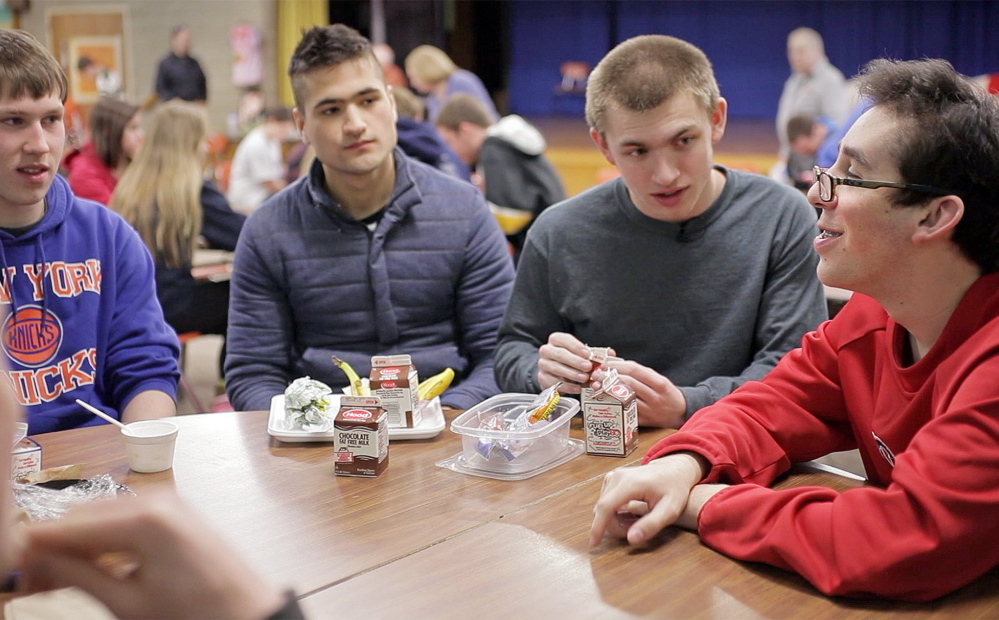For a high school student, there’s not much worse than feeling different. And for students with special needs, school – socially and academically – can be a constant reminder of exactly how they are different.
Unified sports programs can change some of that, by putting all participants – special and regular education – in the same uniform and on the same field of play at the same time. It’s been used in other states, and across the world, with impressive results, and it’s coming to Maine this winter. Teams at some high schools begin practice Jan. 5, and the rest should take notice and be ready to form their own in the coming years.
Unified sports programs were developed in the 1980s by the Special Olympics. Teams consist of players both with and without developmental disabilities, known as “athletes” and “partners,” respectively. They share the court, track or field in equal numbers. Games are competitive, but they also have a higher purpose – to break through the stereotypes and misconceptions faced by those with special needs.
The programs have grown in popularity in recent years. By 2010, more than half a million athletes and partners were competing in unified sports around the globe. In the United States, more than 2,000 schools in 42 states take part.
Wherever the programs have taken root, the benefits have been clear.Intellectually disabled individuals, who tend to be less active and more obese than their age group as a whole, are able to participate in an athletic activity.
They are exposed to the camaraderie of team sports, helping to improve social skills. They build friendships, learn teamwork, and experience winning and losing together with students they might not otherwise interact with.
The same can be said of the “partners.” They are not typically varsity-level athletes, so unified teams give these students an opportunity to stay active and competitive, as well.
And they, too, develop relationships with their new teammates. After a season together, they no longer define their teammates by their disabilities. Given time, the rest of the school follows suit. Eventually, the players are cheered on the field and recognized in the hallways as ambassadors of the school.
That changing dynamic led one Rhode Island athletic director to call unified sports the “best (anti) bullying program you could ever put into your school.”
In New Hampshire, where the unified soccer state title game is held on the same day and on the same field as the varsity championships, this year’s winning head coach said his players are treated by other students just as any other high school athlete. “They’re not focusing on what makes these kids different anymore,” he told Foster’s Daily Democrat.
That process starts here this winter, as the Maine Principals’ Association lauches a unified basketball league, with Special Olympics Maine offering $3,000 in seed money to each school that joins.
So far, 17 schools have taken up the offer, including Bonny Eagle, Gorham, Greely and Yarmouth.
That’s a start. If the same happens in Maine as in other states, more schools, and more sports, will be added next year, and the year after. Soon, it won’t be that different at all.
Send questions/comments to the editors.



Success. Please wait for the page to reload. If the page does not reload within 5 seconds, please refresh the page.
Enter your email and password to access comments.
Hi, to comment on stories you must . This profile is in addition to your subscription and website login.
Already have a commenting profile? .
Invalid username/password.
Please check your email to confirm and complete your registration.
Only subscribers are eligible to post comments. Please subscribe or login first for digital access. Here’s why.
Use the form below to reset your password. When you've submitted your account email, we will send an email with a reset code.